Gold, Geometry & Glamour: Dubai’s Impact on Global Interior Trends
Dubai is no stranger to excess. From record-breaking skyscrapers to palatial resorts in the desert, it’s a city that has transformed extravagance into an aesthetic. But beyond the surface-level shine, Dubai has carved out a distinct influence on global interior design. At the intersection of cultural richness, architectural daring, and ultra-modern luxury, Dubai has created a design identity that is now shaping trends around the world.
In this article, we explore how Dubai’s visual language—defined by gold finishes, bold geometry, and unapologetic glamour—is influencing everything from high-end residences to boutique hospitality projects in cities across the globe.
The Language of Opulence
Dubai’s interiors speak in the language of luxury—one that is rooted in heritage yet unapologetically futuristic. Every design element, from gilded ceilings to sculptural lighting, aims to dazzle. But this dazzle isn’t superficial. It’s underpinned by meticulous craftsmanship, material richness, and spatial drama.
Key Characteristics:
-
Gold and brass detailing as a central decorative motif.
-
Intricate geometric patterns inspired by Islamic art.
-
Theatrical use of scale: oversized chandeliers, sweeping staircases, and expansive marble surfaces.
These components have gone from being regional signatures to global design motifs, replicated in penthouses, hotel lobbies, and private clubs from London to Los Angeles.
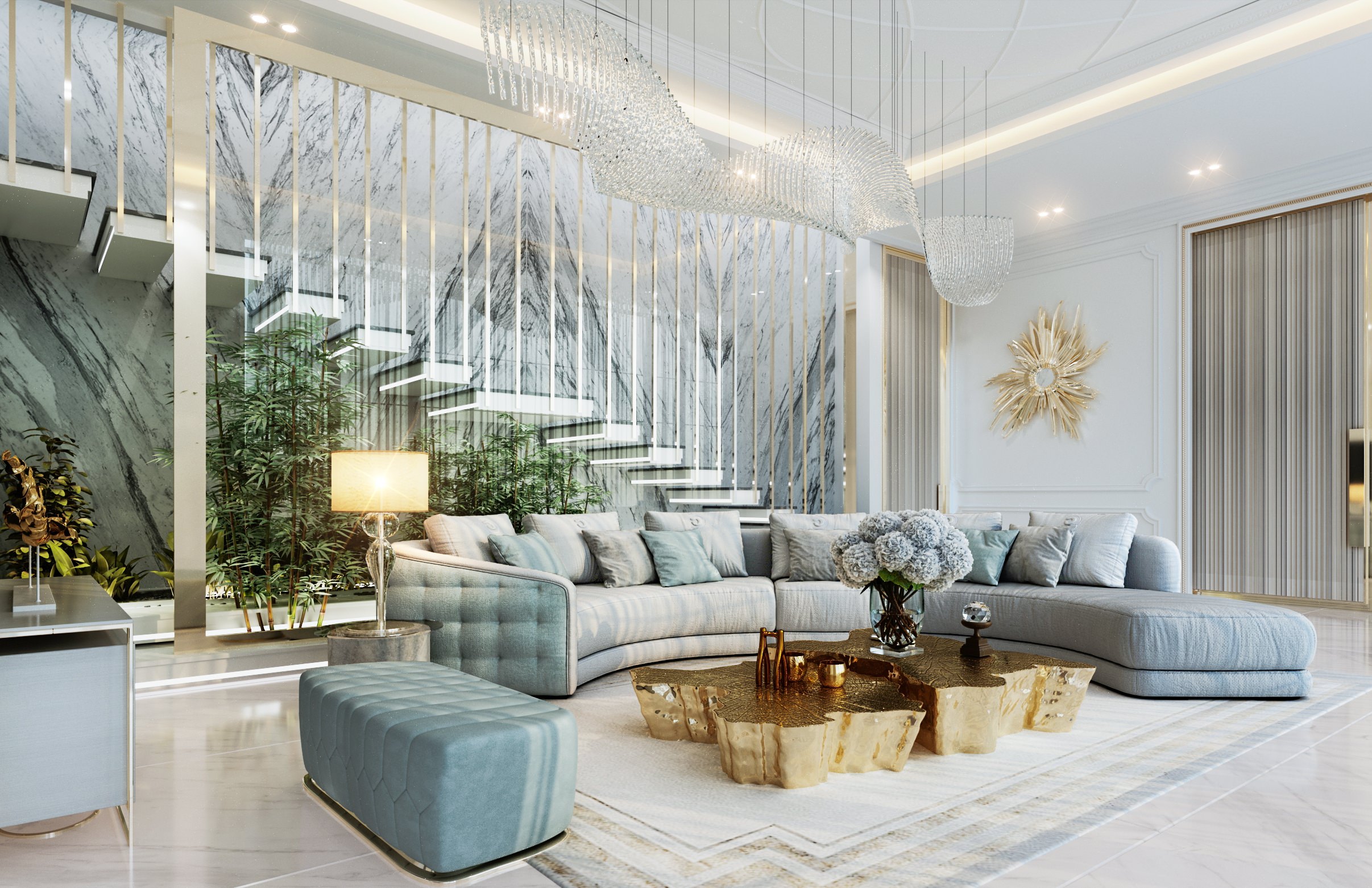
Gold: The Finish That Reigns
Gold in Dubai isn’t just a color—it’s a symbol. While once considered too ornate for contemporary Western interiors, gold is now making a full-scale comeback, largely thanks to Dubai’s fearless use of metallics.
Design Impact:
-
Gold accents are now being used globally to inject warmth and richness into minimal spaces.
-
The trend has evolved beyond shiny surfaces—today’s gold is matte, brushed, hammered, or aged.
-
Light fixtures, furniture legs, mirror frames, and even kitchen hardware are receiving the gilded treatment.
Interior designers now often use gold as a tool of sophistication—less Versailles, more curated modern elegance. Dubai’s influence here has made metallics mainstream again.
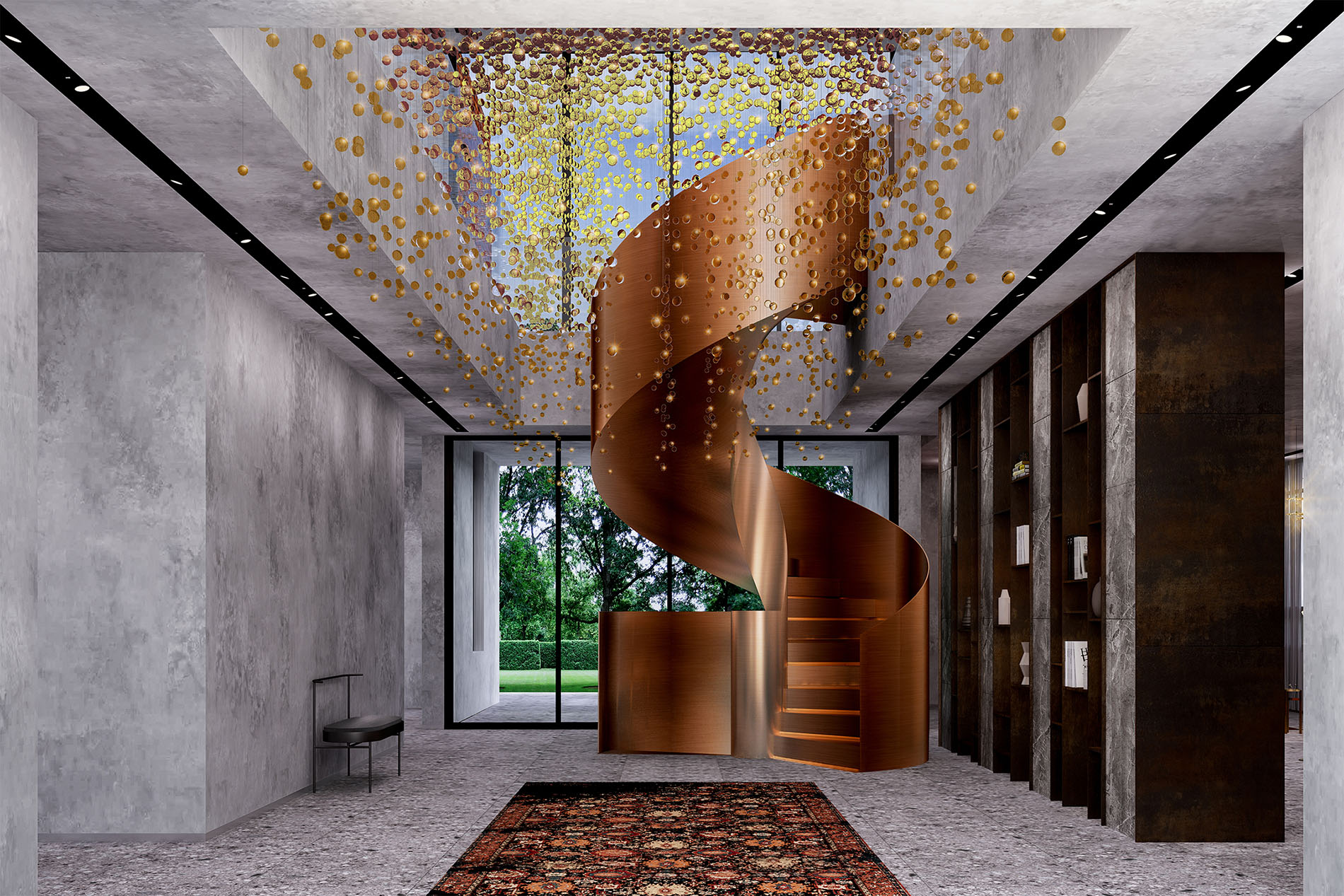
Geometry: From Decoration to Structure
Another Dubai export that’s influencing global design is its bold use of geometry. Patterns inspired by Islamic tilework, lattice screens, and tessellation are no longer confined to walls or floors—they are structural and spatial.
How Geometry is Shaping Spaces:
-
Screens and partitions feature mashrabiya-inspired cutouts for both ornament and function.
-
Geometric motifs are embedded in cabinetry, textiles, and even ceiling designs.
-
Furniture and lighting with faceted, angular forms are increasingly popular in modern collections.
Geometry in Dubai isn’t just decorative—it’s narrative. It tells stories of craftsmanship, cultural pride, and innovation, all while adding rhythm and texture to a space.
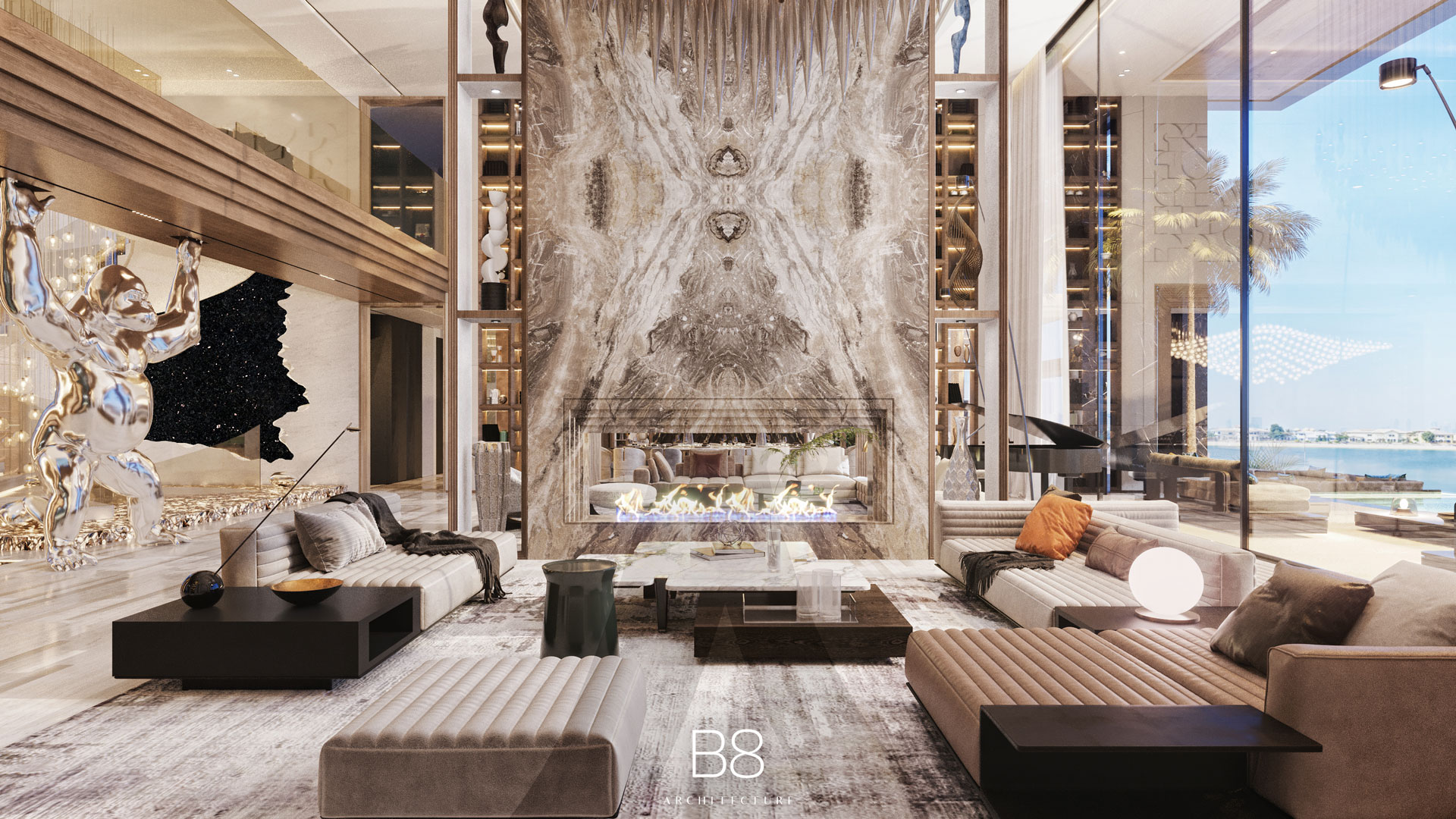
Glamour: Elevated and Evolving
Glamour in Dubai isn’t about gaudiness—it’s about atmosphere. It’s about stepping into a room and feeling transported. It’s about spaces that feel cinematic, sensual, and larger than life.
Global Appeal of Dubai-Style Glamour:
-
Plush materials like velvet, silk, and lacquer are being reintroduced in contemporary palettes.
-
Statement furniture is used strategically to punctuate minimalist environments.
-
Curved shapes, soft lighting, and high-contrast finishes create emotional impact.
This curated, layered approach to glamour—honed in Dubai’s hotels, lounges, and homes—is influencing luxury interiors worldwide. It’s no longer about “more,” it’s about emotive elegance.
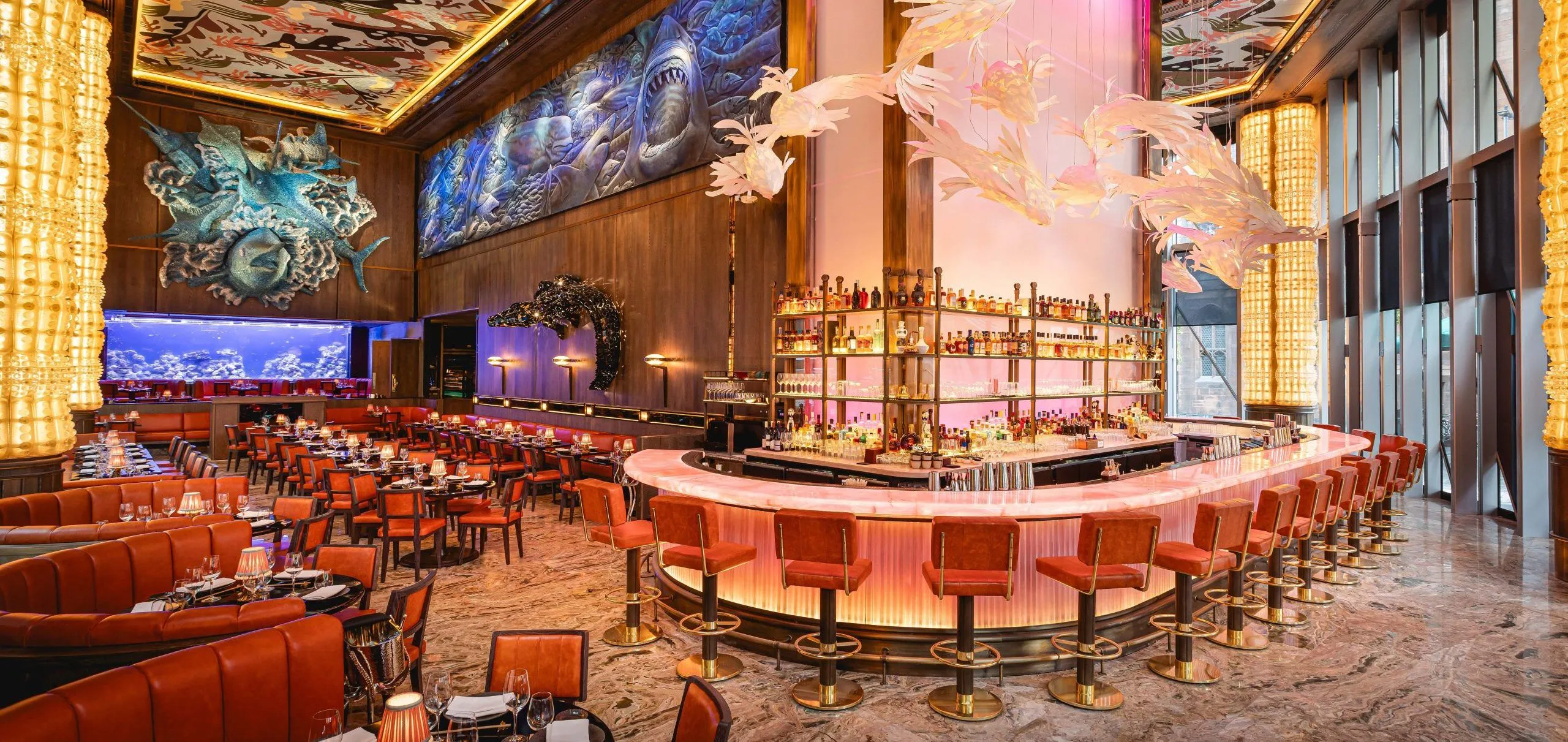
Dubai’s Influence on Hospitality and Residential Design
From New York’s high-end condominiums to Parisian boutique hotels, the Dubai design effect is increasingly visible:
-
Boutique Hotels: Embracing bold palettes, custom metalwork, and mood lighting once exclusive to Dubai lounges.
-
Luxury Homes: Incorporating arches, metallic accents, and ornate ceilings that subtly nod to Middle Eastern motifs.
-
Global Retail Spaces: Using geometric installations and gilded interiors to signal sophistication and exclusivity.
Dubai has successfully merged regional identity with global luxury, creating a hybrid language that designers across continents are now fluently speaking.
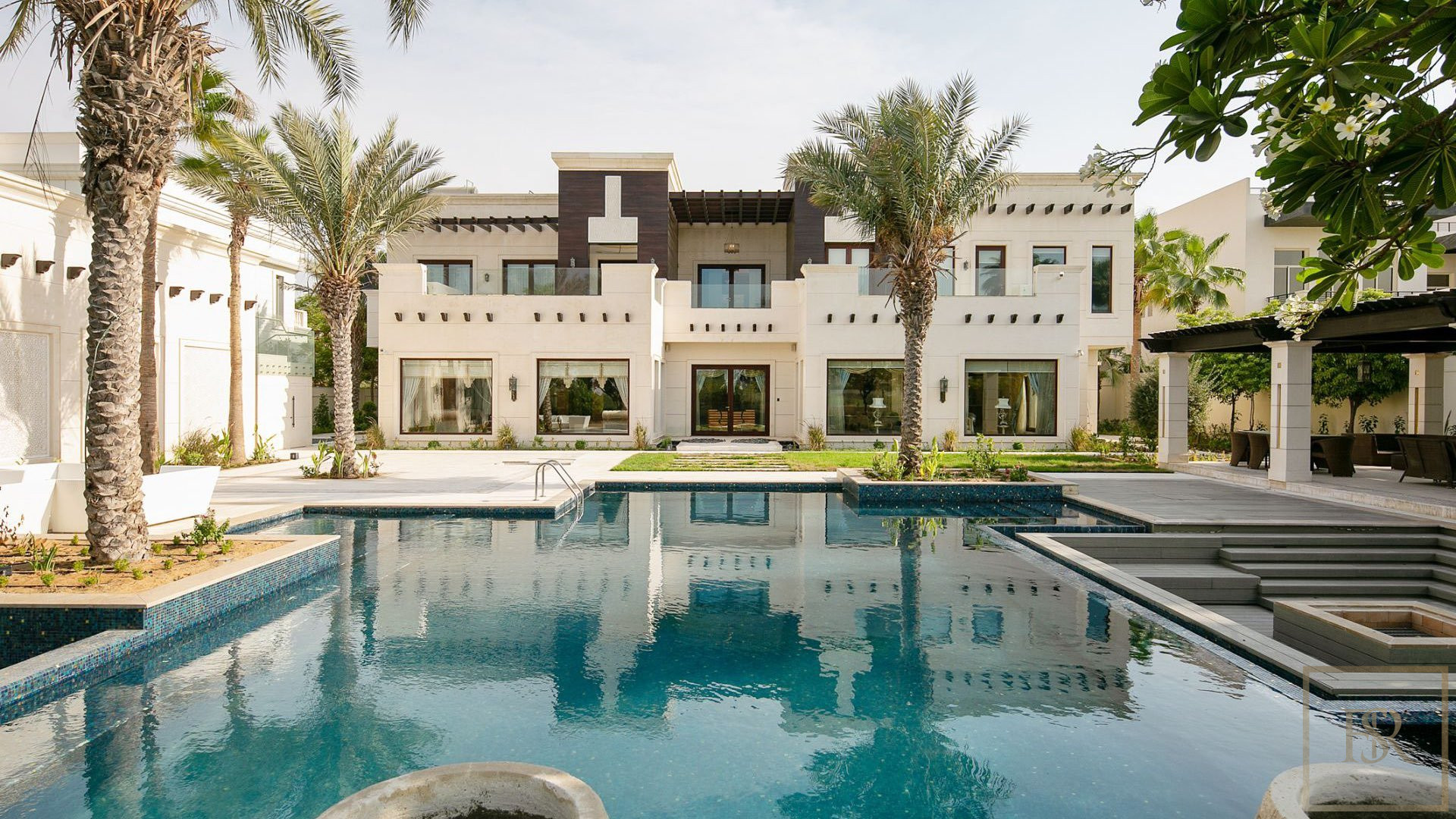
Why Nolita Harbour
Dubai’s aesthetic revolution has redefined the way we think about form, finish, and luxury—three pillars that Nolita Harbour holds at the core of its design philosophy.
At Nolita Harbour, we draw from global movements in interior design, distilling them into collections that balance minimalism with richness, and geometry with grace. While inspired by places like Dubai, our approach is grounded in subtle sophistication and timeless craftsmanship.
Where Dubai makes bold design accessible and desirable, Nolita Harbour brings those ideas to life in furniture and lighting that’s sculptural yet functional, dramatic yet enduring. We believe interiors should not only reflect beauty but also story, culture, and identity—values deeply embedded in Dubai’s design heritage.
Whether you’re designing a luxury residence, a high-end hospitality space, or an artful retail environment, Nolita Harbour provides the creative bridge between Middle Eastern opulence and Mediterranean restraint—resulting in pieces that are globally inspired but deeply personal.
Final Thoughts
Let Dubai inspire your vision. And let Nolita Harbour transform that vision into enduring design.